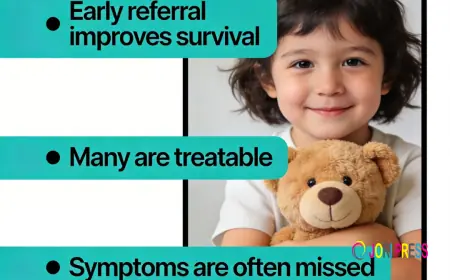Can Invisalign Braces Treatment Worsen TMJ Symptoms?
Want to enhance the appearance of your misaligned teeth? Learn to know more about the Invisalign Braces Treatment Cost in Dubai, Abu Dhabi & Sharjah and its effectiveness.

Invisalign braces treatment is a modern orthodontic approach that uses clear aligners to help straighten teeth gradually. Unlike traditional braces, these aligners are custom-made to fit comfortably over the teeth and are changed at intervals to guide teeth into their proper position. This method is often chosen for its discreet appearance and ease of use. For individuals with concerns about jaw health, especially those with temporomandibular joint (TMJ) issues, understanding how Invisalign may interact with these conditions is important. Let's delve into Invisalign Cost Dubai.
What is TMJ and Its Common Symptoms
The temporomandibular joint connects the jawbone to the skull, allowing essential movements such as speaking, chewing, and yawning. TMJ disorders occur when there is dysfunction, inflammation, or stress in this joint, leading to a range of symptoms such as jaw pain, stiffness, headaches, and clicking sounds when opening or closing the mouth. Some people may also experience difficulty in fully opening their mouths or feel discomfort when chewing.
How Orthodontic Treatment Relates to TMJ Health
Orthodontic treatment can have an impact on jaw alignment and bite function, which are closely related to TMJ health. Since the jaw joints, teeth, and muscles all work together, any changes to one area may influence the others. Adjusting the position of the teeth can sometimes relieve strain on the jaw, while in other situations, it could temporarily increase tension.
Can Invisalign Contribute to TMJ Discomfort?
In some individuals, wearing Invisalign aligners may lead to mild jaw adjustments as the teeth shift. This can occasionally result in increased awareness of jaw tension or mild discomfort in those who already have TMJ issues. However, for many people, Invisalign treatment does not cause long-term worsening of TMJ symptoms. Instead, it may help improve the bite and alignment, which can ultimately support better jaw function.
Factors That May Influence TMJ Symptoms During Invisalign Treatment
Several factors can determine whether TMJ symptoms change during Invisalign treatment:
-
Existing bite misalignment before starting treatment
-
The degree of jaw muscle tension present
-
How quickly the teeth are moved during the process
-
Overall oral posture and habits such as clenching or grinding
These elements can vary greatly between individuals, which is why experiences with TMJ symptoms during Invisalign can be different.
Possible Reasons for Increased Jaw Awareness During Treatment
When Invisalign aligners shift teeth into new positions, the jaw muscles may need to adapt to these changes. For some, this adjustment period can bring temporary sensations such as jaw tightness or mild fatigue. This is generally due to the muscles learning to work in harmony with the new bite positions. Over time, these sensations often lessen as the jaw adapts.
Potential Benefits of Invisalign for TMJ-Related Bite Issues
In cases where TMJ discomfort stems from bite problems, Invisalign may offer a supportive role. By gradually aligning the teeth and improving bite balance, the strain on the jaw joints can be reduced. A more even bite distribution helps prevent excess pressure on one side of the jaw, allowing muscles to work more efficiently and comfortably.
When TMJ Symptoms Should Be Monitored Closely
While many people adjust to Invisalign treatment without complications, those who already have TMJ-related discomfort may choose to pay closer attention to changes in their jaw function during treatment. If symptoms such as jaw locking, persistent pain, or difficulty chewing become more noticeable, it may be worth discussing adjustments to the treatment plan.
FAQs
Can Invisalign make TMJ permanently worse?
Most people do not experience permanent worsening of TMJ symptoms with Invisalign. In fact, some individuals may find their symptoms improve once their teeth are better aligned and their bite is more balanced.
Is jaw discomfort common during the first weeks of Invisalign?
It is not unusual for the jaw to feel different in the initial weeks as the teeth begin shifting. This is often a temporary adjustment period and may subside as the mouth adapts to the aligners.
Could Invisalign help if TMJ symptoms are linked to a poor bite?
If TMJ discomfort is connected to uneven bite forces or tooth misalignment, Invisalign may help reduce these issues by creating a more balanced bite over time.
How can someone tell if their TMJ symptoms are related to Invisalign?
Keeping track of when symptoms occur can be helpful. If discomfort appears primarily during the early stages of aligner use and eases over time, it may simply be part of the adjustment process.
Maintaining Comfort During Invisalign Treatment with TMJ Concerns
For individuals concerned about TMJ discomfort during Invisalign Braces Treatment Cost in Dubai, adopting habits that support jaw health can make the process smoother. Simple practices such as being mindful of clenching, keeping the jaw relaxed when not chewing, and practicing good posture can help reduce unnecessary strain on the joint. Gentle jaw relaxation exercises may also help maintain comfort.
Final Thoughts
Invisalign braces treatment does not automatically worsen TMJ symptoms for everyone. The impact largely depends on the individual’s jaw health, bite alignment, and how their body adapts to tooth movement. While some may notice temporary changes in how their jaw feels, many people find that improved alignment ultimately supports better jaw comfort and function. Staying aware of how the jaw responds during the process and maintaining open communication with an orthodontic professional can help ensure a positive experience.
What's Your Reaction?
 Like
0
Like
0
 Dislike
0
Dislike
0
 Love
0
Love
0
 Funny
0
Funny
0
 Angry
0
Angry
0
 Sad
0
Sad
0
 Wow
0
Wow
0

















































